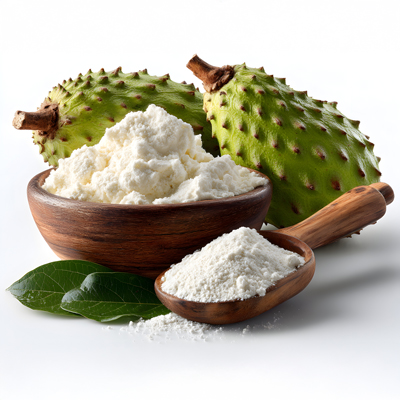Vitamins
All information about "Vitamins" and the related magazine articles can be found here.
Our articles are written clearly and link to scientific studies where relevant. This is how we meet our own standards: we regularly deliver new, high-quality content for you—free of charge, no sign-up required, with the highest possible benefit to you.

Beta-glucan & liposomal vitamin C
A strong foundation for your immune system
Discover how beta-glucans and liposomal vitamin C work hand in hand to support your immune system and create a solid foundation for your daily well-being.

Bitter drops: Your ritual for September
Rediscover the forgotten power of bitter substances
Read how bitter drops and foods containing bitter substances can aid digestion and increase your well-being. A little ritual that fits perfectly into your September cooking.

Magnesium Complex + Vitamin B6 in the evening
Your invitation to rest
Treat your body to the rest it needs after a long day. A magnesium complex with vitamin B6 can help relax your muscles and nerves and gently prepare you for a restful night's sleep.

Small strength for big changes
Vitamin C ascorbyl palmitate: your silent companion in sensitive times
When your body and everyday life are changing, even familiar things take on a new light. Vitamin C appears in a special form with ascorbyl palmitate, offering a fresh perspective on this well-known nutrient.

Zinc & Selenium: Your support for men's health
The silent helpers for vitality and a strong immune system
Discover how zinc and selenium strengthen your health from within as essential building blocks. This guide shows you how to sustainably support your performance and resilience.

In harmony through September
Omega-3 from algae DHA – for your heart, joints, and nerves
Between emails, appointments, and routines, September can quickly feel like a double espresso. Omega-3 from algae DHA can gently balance the body and support your heart, joints, and nerves. A quiet background noise that can provide stability.

Children strong throughout the day
Immune system, energy, and everyday eating made easy
How to gently strengthen your child's immune system with colorful plates, bedtime rituals, and fresh air. Plus: When child-friendly multivitamins make sense and how to relax and fit them into your everyday routine.

Strong joints in everyday life
Collagen, MSM & glucosamine under the microscope
Knee twinges, shoulder aches? Collagen, MSM, and glucosamine can help support joint comfort and mobility—making it easier to climb stairs, play, and tackle tasks.

A touch of sunshine for gray days
Get through fall with vitamins D3 and K2
When the light fades, your energy can stay strong. D3 and K2 help you relax and get through the cooler months, like a little supply of sunshine for every day. Find out more here!

Your silent DJ for everyday life
Coenzyme Q10 – energy in the background, balance in the foreground
Sometimes you don't need a loud drive, but a reliable foundation. Q10 acts like a quiet pacemaker that harmoniously organizes your inner energy. This creates a flow that carries you relaxed through everyday life.

Time for a cell reset?
Cell care with a conscious mind: A clear autumn with spermidine
Between sunscreen residue and the hustle and bustle of everyday life, the need for order is quietly making itself known. This is exactly where Spermidin comes in - for all those who want to reorganize their inner life and get started with fresh energy.

Between resting mode and new beginnings: L-threonine in focus
When your head is still barefoot but your calendar is already wearing sneakers
L-threonine suits this in-between time like iced coffee suits late summer: subtle, but just right. Discover how the silent amino acid can give your system gentle structure - in the middle of the transition.

Goodbye, summer chaos - hello, hormone balance!
Find your way back from vacation mode to everyday life with Inositol.
The summer was wonderfully carefree, but now hormones, skin and mood are dancing out of line? Inositol is the secret director that gently directs your body back into rhythm. Discover how this nutrient can help you get going again full of energy and balance!

Clarity of thought meets plant power
With ginkgo, ginseng & bacopa naturally through everyday life
When thoughts are still in the hammock but the calendar is already drumming away, gentle structure is required. Get to know three herbal classics that balance concentration and calm - without any caffeine.

From heat to strength: more balance and energy with Tribulus terrestris
Herbal impulses for your body - when summer, everyday life and hormones collide
Your head is full, your circulation tired and summer means a little too well? Tribulus terrestris can help exactly where energy and inner stability start to falter. Find out here how this resilient plant can become your natural drive through the warm days.

Harvest time for your immune system
Zinc & beta-glucan - for gentle strength when summer becomes quieter
When the sun gets lower and the air smells of change, a quiet transition also begins in the body. Zinc and beta-glucan can provide beneficial stimuli right now - for an immune system that experiences the transition consciously and in balance.

Berry power through the summer - with antioxidants & vitamin C
Local berries provide flavonoids, vitamin C and antioxidants - good for the heart, immune system and freshness.
Summertime is berry season - perfect for an active, healthy lifestyle. Local berries such as blackcurrants and blueberries are not only delicious, but also rich in vitamin C and flavonoids. They support cell protection, strengthen the blood vessels and boost your vitality.

Yam root & vitamin C
Natural nutrients for energy, skin glow & hormonal balance
Do you often feel tired or does your skin long for freshness? Learn how yam stabilizes your mood and vitamin C (ascorbic acid) provides your collagen boost - easy to integrate into your daily routine!

Blood sugar under control: How chromium stabilizes naturally
Chromium helps to regulate blood sugar fluctuations. For more energy and balance.
Chromium protects cells from sugar damage, has an antioxidant effect and stabilizes blood sugar - without any artificial additives. Ideal for greater well-being and fewer cravings, especially in the sugar-rich summer.

Stay mineralized when it gets hot
Stay fit through the summer with calcium and magnesium from sango coral
If heat, sweating and circulatory problems are getting to you, a good supply of minerals is crucial. Find out here how calcium and magnesium from sango coral can support you naturally.

Hormones in sync: For a vacation full of well-being
Beta-sitosterol & zinc: companions for hormonal balance on vacation
The suitcase is packed, the anticipation is huge - but what if the hormones find their own rhythm on vacation? New surroundings can keep the body on its toes. Fortunately, there is a natural dream team: beta-sitosterol and zinc. Find out here how this duo keeps the balance and gives you carefree vacation days!

Plant-based protective shield for your summer
Graviola - For support with inflammation and sensory overload
Are you dreaming of a warm season full of serenity in which your body vibrates in harmony? Graviola can help you maintain inner balance and gently support you through the challenges of inflammatory reactions or sensory overload. Discover how this exotic plant can contribute to your summer well-being.

Your Circulation Compass: Naturally in balance with nattokinase & OPC
Gentle support from nature for your well-being and vital blood vessels
Does your inner rhythm sometimes falter and your sense of well-being diminish? With nattokinase and OPC, nature offers a gentle way to harmonize your circulation and care for your blood vessels. Discover here how this duo can lead you back to new balance and vitality!

Awake in the moment, focused through long summer days with caffeine
Your kick for concentration and joie de vivre
Do you dream of experiencing the endless summer days with full presence and a clear head instead of fighting fatigue? Caffeine can be your natural ally to sharpen your focus and enjoy every ray of sunshine, every adventure with awareness and energy. Discover here how to make your summer moments more alert!
Vitamins - essential for our health
Vitamins play a crucial role in our health and well-being. They are essential nutrients that our body needs to function optimally. But what different vitamins are there? Which foods contain them? And what functions do the individual vitamins have? We take a closer look at these and other questions in this article.
The 13 known vitamins
There are a total of 13 known vitamins that are essential for the human body. These can be divided into two main groups: fat-soluble and water-soluble vitamins.
Fat-soluble vitamins
The fat-soluble vitamins include:
- Vitamin A
- Vitamin D
- Vitamin E
- Vitamin K
These vitamins can be stored in the body's fatty tissue and therefore do not need to be taken daily.
Water-soluble vitamins
The water-soluble vitamins include:
- Vitamin C
- B vitamins: B1, B2, B3, B5, B6, B7 (biotin), B9 (folic acid), B12
In contrast to fat-soluble vitamins, these cannot be stored in the body and must be taken in regularly through food.
What is the importance of the individual vitamins for humans?
Each vitamin has specific functions in the body. We will now take a closer look at what these are.
Vitamin A
Vitamin A, also known as retinol, is important for the production of testosterone and sperm cells, making it a significant factor in reproduction. It also promotes healthy bones, teeth and cartilage and is essential for the development and regeneration of the skin. The daily requirement for vitamin A varies according to age and gender, but is generally between 0.8 and 1.1 milligrams in the form of beta-carotene (which is converted to vitamin A in the body).
Vitamin D
Vitamin D is often referred to as the sunshine vitamin, as it is the only vitamin that can be produced by the body itself with the help of sunlight. It is crucial for a positive mood, a strong immune system and healthy bones and muscles. It also contributes to a healthy cardiovascular system. The daily requirement for vitamin D is around 20 micrograms [1].
Vitamin E
Vitamin E acts as a powerful antioxidant with anti-inflammatory properties. It is important for memory, healthy blood vessels and the immune system. Adults should consume between 11 and 15 milligrams of vitamin E daily. [2]
Vitamin K
Vitamin K is primarily known for its importance in blood clotting, where it is involved in the activation of several clotting factors. Vitamin K also has an important influence on bone metabolism. It activates the protein osteocalcin, which is essential for new bone formation and bone remodeling. The daily requirement for vitamin K varies according to age and gender, with good sources being green vegetables for vitamin K1 and animal products for vitamin K2. An adequate supply of vitamin K is particularly important for bone health, especially in older people, to reduce the risk of osteoporosis and bone fractures.
Vitamin C
Vitamin C is known as the all-rounder for the immune system. It not only strengthens the body's own defenses, but also supports the formation of bones and cartilage. Vitamin C also improves the absorption of iron from plant foods and acts as an antioxidant by scavenging free radicals and thus protecting the cells. It also plays a supporting role in wound healing. The average daily requirement of vitamin C is around 100 milligrams, which can easily be met by eating a large orange or 75 grams of currants [3].
B-vitamins
B vitamins are essential for the production of energy from carbohydrates and proteins and support many bodily functions:
- Vitamin B1 (thiamine) is crucial for energy production and supports the nervous system and muscles.
- Vitamin B2 (riboflavin) is known as an energy vitamin and supports the production of energy from fat, protein and carbohydrates as well as the burning of fat.
- Vitamin B3 (niacin) promotes energy production, has a positive effect on thinking and memory and can help to reduce tiredness.
- Vitamin B5 (pantothenic acid) is an important component of the coenzyme CoA and is required for the breakdown of carbohydrates, fats and amino acids.
- Vitamin B6 (pyridoxine) contributes to normal energy, protein and glycogen metabolism and supports normal nerve function.
- Vitamin B7 (biotin) is involved as a coenzyme in the conversion of nutrients into energy and ensures a functioning protein and fat metabolism.
- Vitamin B9 (folic acid) is important for athletes as it contributes to the normal functioning of the metabolism of various nutrients.
- Vitamin B12 plays an important role in the formation of red blood cells, the function of nerve cells and cell division and also has an influence on our psyche.
What is the daily vitamin requirement?
There is no general answer to the question of which vitamins you should take every day. Individual requirements depend on various factors such as age, gender, lifestyle and state of health.
A healthy, varied diet with plenty of fresh fruit, vegetables, wholegrain products, lean meat and fish generally provides all the vitamins you need. Experts recommend:
- Three portions of vegetables and two portions of fruit daily
- Regular consumption of wholemeal and dairy products
- Spend time outdoors to stimulate the body's own vitamin D production
Special situations and risk groups
In special situations and for risk groups, additional vitamin supplementation may be necessary:
- With a vegetarian or vegan diet, for example, it is important to pay particular attention to the supply of vitamin B12, as this is mainly found in animal products.
- Pregnant and breastfeeding women have an increased need for folic acid to prevent developmental disorders in the fetus.
- Additional intake may also be necessary in the case of certain illnesses that impair vitamin absorption.
- Targeted vitamin supplementation can also be important for competitive athletes. Intensive physical exertion and an increased metabolism increase the need for certain vitamins, especially the water-soluble B vitamins and vitamin C. These vitamins are increasingly lost through sweat and urine. These vitamins are increasingly lost through sweat and urine. Supplementation may also be advisable for athletes who have a high carbohydrate diet with a low micronutrient density or who exclude certain food groups.
In allen Fällen ist eine ärztliche Beratung ratsam, wenn Sie Nahrungsergänzungsmittel wie einem Vitamin-B-Komplex, Multivitamin oder anderen Vitamine von A-Z einnehmen möchten, weil ein Arzt Ihren individuellen Bedarf ermitteln kann. Das gilt insbesondere dann, wenn die Einnahme hochdosiert erfolgen soll.
The role of vitamins for the metabolism
Vitamins play a crucial role in metabolism and are essential for many vital functions of the body. They are not only involved in numerous metabolic reactions and regulate the utilization of carbohydrates, proteins and minerals, but also act as cofactors for enzymes that are responsible for the build-up and breakdown of substances in the body.
B vitamins are particularly important for energy metabolism: vitamin B2 (riboflavin) triggers energy production from carbohydrates and fat. Vitamin B6, on the other hand, is involved in muscle building and the conversion of amino acids.
Vitamin C supports fat burning by promoting the production of noradrenaline and carnitine. Vitamins also influence the hormone balance, such as the production of thyroid hormones, which regulate the metabolism [4]. Last but not least, they support the immune system and are important for the formation of cells, blood cells, bones and teeth as well as for the function of enzymes that ensure a smooth metabolism in the cells.
Vitamin-rich foods: natural sources for your health
To provide your body with an optimal supply of vitamins, you should eat a varied and balanced diet. The following foods are particularly helpful here:
- Vitamin A: carrots, sweet potatoes, spinach, mangoes
- Vitamin D: Fatty fish (e.g. salmon, mackerel), egg yolk, mushrooms
- Vitamin E: Nuts and seeds, vegetable oils (especially wheat germ oil), avocados
- Vitamin K: kale, spinach, broccoli, Brussels sprouts, parsley, rocket, chives, chickpeas, lentils, rapeseed oil
- Vitamin C: citrus fruits, peppers, broccoli, acerola cherries
- B vitamins: Whole grain products, legumes, meat and fish, eggs, dairy products
Vitamins and the immune system: a strong team
Vitamins help to strengthen and maintain our body's own defenses. Vitamin C is particularly important here. It not only supports the function of white blood cells, our immune cells, but also acts as a potent antioxidant that protects our cells from harmful free radicals [5].
Vitamin D has proven to be an important modulator of the immune response. Studies show that an adequate supply of vitamin D can reduce the risk of infections. This underlines the importance of adequate vitamin D intake, especially in regions or seasons with little sunshine.
Vitamin E also makes an important contribution to immune defense. As a powerful antioxidant, it protects our cells from oxidative stress and thus supports the body's general resistance to pathogens.
Vitamin A is also important for our mucous membranes.
Vitamins in combination
Vitamins should not be considered in isolation, as they often only develop their full effect in combination with other nutrients. One of the best known and most important interactions is between vitamin D and calcium. Vitamin D plays a crucial role in the absorption of calcium in the intestine and is therefore essential for keeping our bones healthy. Without sufficient vitamin D, the body would not be able to optimally utilize the calcium it absorbs, which could lead to reduced bone density in the long term.
Vitamin C and iron also work well together. Vitamin C significantly improves the absorption of iron, especially from plant sources. This is particularly important for vegetarians and vegans, but also for anyone else who wants to optimize their iron intake.
Vitamin E and omega-3 fatty acids also work best together. Omega-3 fatty acids are known for their numerous health benefits, but are also very sensitive to oxidation. This is where vitamin E comes into play: as a powerful antioxidant, it protects the valuable omega-3 fatty acids from oxidative damage and thus maintains their effectiveness. This combination is particularly relevant for heart health and the function of the nervous system [6].
Trace elements such as zinc and selenium also work closely with vitamins to fulfill various important functions in the body.
Special vitamin requirements at different stages of life
Vitamin requirements can change depending on the phase and situation of life:
Pregnancy and breastfeeding
The need for many vitamins is increased during pregnancy and breastfeeding. These are particularly important:
- Folic acid: to prevent neural tube defects in the unborn child
- Vitamin D: for the development of the baby's bones
- Vitamin B12: for the development of the nervous system
Childhood and youth
- Vitamin D: for healthy bones
- Vitamin A: for growth and development
- B vitamins: for energy and the nervous system
Seniors
In old age, the need for certain vitamins can increase, while absorption is often more difficult:
- Vitamin D: for the prevention of osteoporosis
- Vitamin B12: as absorption is often impaired in old age
- Antioxidants (vitamin C, E): to protect against age-related diseases
How can I recognize a vitamin deficiency?
Vitamin deficiency can manifest itself through various symptoms and should be taken seriously. Common signs include persistent tiredness, increased susceptibility to infections, problems with skin and hair and difficulty concentrating. However, these symptoms can also have other causes, which is why a visit to the doctor is advisable if a vitamin deficiency is suspected. The vitamin status can be determined precisely by means of specific blood tests. A balanced and varied diet is the key to preventing a vitamin deficiency.
Vitamins and disease prevention
Vitamins play an important role in the prevention of various diseases:
- Cardiovascular diseases: Vitamins C and E as antioxidants can reduce the risk
- Osteoporosis: Vitamin D and K are important for bone health
- Cancer: Antioxidants such as vitamin C, E and beta-carotene may be able to reduce the risk of certain types of cancer. However, experts are skeptical about this [7].
- Eye diseases: Vitamin A is essential for eyesight.
Vitamins are little helpers with a big effect
Vitamins are essential nutrients that play a central role in our health and well-being. They support numerous bodily functions, strengthen our immune system and our nerves and help us to remain efficient and vital.
Food supplements (in capsule, tablet or powder form) can be useful in certain situations. But remember: they are never a substitute for a healthy lifestyle and diet.
Sources
[1] https://www.rki.de/SharedDocs/FAQ/Vitamin_D/Vitamin_D_FAQ-Liste.html
[2] https://www.aok.de/pk/magazin/ernaehrung/vitamine/vitamine-wichtig-fuer-das-immunsystem-und-die-abwehrkraefte/
[3] https://www.aok.de/pk/magazin/ernaehrung/vitamine/vitamin-c-wie-viel-brauchen-wir/
[4] https://www.schilddruesenpraxis.at/spurenelemente-schilddruese.html
[5] https://pubmed.ncbi.nlm.nih.gov/29099763/
[6] https://pubmed.ncbi.nlm.nih.gov/33445534/
[7] https://www.krebsgesellschaft.de/onko-internetportal/basis-informationen-krebs/bewusst-leben/basis-informationen-krebs-bewusst-leben-ernaehrung/mit-vitaminen-kre.html
